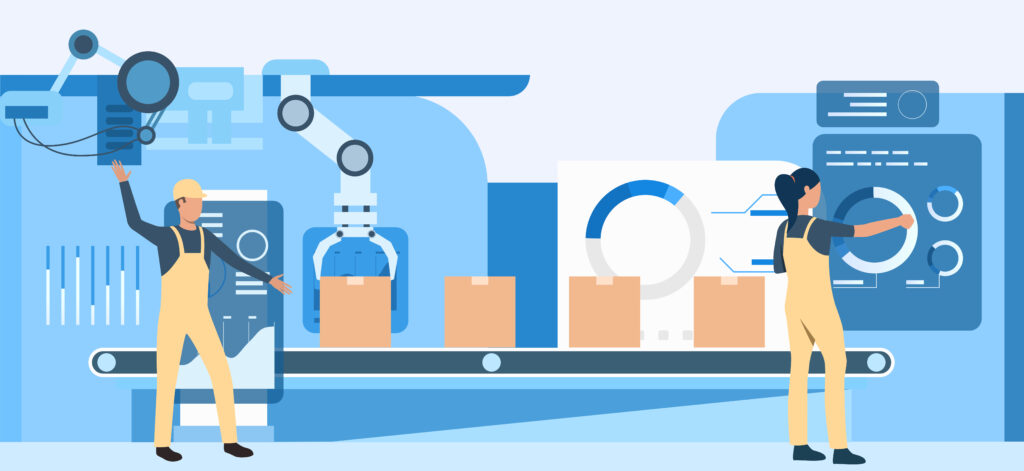Have tight deadlines to meet, manage complex systems, and ensure software quality—so much in one go. This puts the DevOps team under continuous pressure. There’s a way to tackle this issue and accomplish more in less time. AI-driven DevOps helps here.
Using AI in DevOps can accelerate the software development process, identify issues early, and enhance the effectiveness of creating and delivering software.
The latest reports state that nearly 90% of developers and companies now rely on AI tools to improve software development. According to Gartner, more than 70% of companies will utilize AI coding tools by 2028 to accelerate and enhance their development efforts.
Businesses that want to stay competitive now rely on using AI in DevOps. How do AI and DevOps work together, and what benefits can your business gain from them?
Let’s look at how this happens in more detail.
About AI in DevOps
AI in DevOps is revolutionizing software development by enabling effective and innovative automations that streamline the development and deployment of software. Today, as competition grows in the software development world, AI is the need of the moment at every phase of software development, including building, testing, releasing, and tracking performance.
We aim to automate more tasks, help teams make informed decisions, and provide information that streamlines their work. AI assists with various DevOps tasks, including assembling code, identifying errors early, and providing suggestions before issues arise.
Ways AI in DevOps is shaping Software Development and Deployment
DevOps has always been about doing things faster and keeping everything running smoothly between teams. It already uses automation for many jobs, like testing and deployment. But there’s a limit—automation just follows fixed instructions. It doesn’t change or improve on its own.
That’s what makes AI different. It learns from data, sees patterns, and improves over time. It helps DevOps teams not only perform tasks but also do them more effectively with reduced risk.
Let’s examine the primary ways AI is enhancing software development and deployment.
- AI-Powered Predictive Analytics
DevOps teams struggle when systems crash or slow down without warning. These problems can stop work and hurt businesses. AI can spot these risks before they happen.
Step-by-Step Approach
- AI tools in DevOps analyse large sets of past system data, such as logs and performance charts.
- They detect common patterns from past problems.
- They send alerts when signs of these same problems appear so that teams can address them early.
- Anomaly Detection
Monitoring systems manually can be tough. Finding what’s wrong among huge sets of data is not simple. AI makes this easier by noticing when something looks unusual.
Step-by-Step Approach
- AI monitors logs, how systems work and their performance.
- It detects changes such as sudden CPU spikes, unusual login attempts, or delayed responses.
- AI adjusts to changes over time and spots issues without needing fixed rules.
- AI-Driven Intelligent Automation
In standard DevOps, automation follows a script. It doesn’t think or adjust. With AI, automation becomes smarter and more flexible.
Step-by-Step Approach
- AI studies past tasks and learns what worked and what didn’t.
- It can undo a bad software update immediately to prevent problems.
- AI chat tools help DevOps teams with answers and fast fixes to issues.
- AI in Continuous Integration & Continuous Deployment (CI/CD)
CI/CD helps build and launch software efficiently. AI helps improve this by reducing errors and accelerating processes.
Step-by-Step Approach
- AI checks code for mistakes, security risks, or slow sections before release.
- It focuses on important tests and skips the unnecessary ones.
- AI determines the optimal time to release updates to minimise disruptions.
Use Cases of AI in DevOps
AI has become crucial for DevOps teams seeking to accelerate software tasks, minimize bugs, and optimize tool management.
Some well-known companies are already using AI in their DevOps pipelines.
Here are a few real-world examples of how this is done.
1. Predicting and Preventing Issues
Netflix utilises AI to identify issues before they impact users. It examines historical data and usage patterns to predict where outages or slow service may occur.
By acting before users notice any issues, their team keeps services running and users satisfied.
2. Automating Testing and Improving Quality
Facebook adds AI to its testing process. These AI tools learn from older test results and find which tests matter most.
This saves time and helps identify bugs faster, which means their updates are more effective and reach users sooner.
3. Managing Resources Efficiently
Spotify uses AI to manage its cloud systems. It tracks user activity and shifts resources as needed.
When traffic is high, more resources are added. When it’s low, they scale back. This approach avoids waste while maintaining strong performance.
Conclusion
AI will play a major role in the development of DevOps. Teams will utilize AI to enhance and improve every phase of the software development process.
AI monitors for any issues that may lead to outages, conserves resources, and helps software reach users more quickly.
If DevOps utilizes AI in companies, these companies will benefit from completing work quickly, achieving superior quality, and handling operations efficiently.



